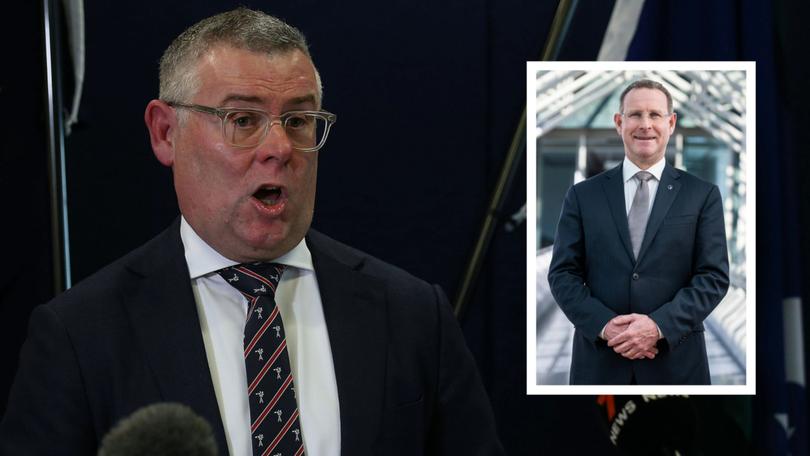Right to disconnect: Business warn law will ‘crush’ productivity as Labor braces for IR election fight
Nervous bosses warn Labor’s latest workplace laws – including the contentious right to disconnect – will ‘crush productivity’ and create a lawyers’ picnic as they brace for the start of the new regime.

Nervous bosses warn Labor’s latest workplace laws — including the contentious right to disconnect — will “crush productivity” and create a lawyers’ picnic as they brace for the start of the new regime.
Business leaders are also on edge after separate IR changes were used to wrangle three mining companies into multi-employer bargaining, prompting renewed fears of an outbreak of industrial action in the Pilbara.
Workplace Relations Minister Murray Watt brushed off both sets of concerns as he declared IR would be a battleground issue at the Federal Election.
Sign up to The Nightly's newsletters.
Get the first look at the digital newspaper, curated daily stories and breaking headlines delivered to your inbox.
By continuing you agree to our Terms and Privacy Policy.The workplace laws will officially start on Monday, roughly six months after the final parts of the controversial Closing Loopholes Bill passed Parliament.
It includes a “right to disconnect” that allows workers to ignore after-hours contact from their bosses — unless it is “unreasonable” to do so.
The change — a last-minute addition to the Bill under a secret Labor-Greens deal — has sparked concern in WA with many questioning how businesses will manage East Coast staff and clients, particularly during daylight saving.
Small businesses with fewer than 15 staff will get a 12-month reprieve before the law applies to them.
Australian Chamber of Commerce and Industry chief executive Andrew McKellar said on Sunday that a lack of clarity around what constituted “reasonable” contact would result in a raft of legal disputes between employers and workers.
“So the lawyers will be the winners and small business will be losers,” Mr McKellar said.
Mr McKellar said the new right would “crush productivity”.
A new definition of a casual employee and powers allowing the Fair Work Commission to set minimum standards for gig workers, such as Uber drivers, also start on Monday.
Business Council of Australia chief executive Bran Black said the latest tranche of changes put Australia’s competitiveness at risk by adding to the cost and complexity of doing business.
Senator Watt argued that “clocking off used to mean something in this country” and it “should not be controversial that workers shouldn’t be required to do unpaid overtime”.
Speaking from Opposition Leader Peter Dutton’s home electorate on Sunday, Senator Watt predicted IR would be a “major part” of the election campaign, with the Opposition already promising to repeal the “right to disconnect” if it wins.
Shadow workplace relations minister and WA senator Michaelia Cash said the changes were “designed to create confusion in workplaces across Australia”.
She said the “right to disconnect” would undermine flexible working arrangements, while the new definition for casuals — aimed at making it easier for workers to convert to permanent employment — would “destroy” causal work.
As business braces for the start of the third wave of Labor’s IR overhaul, the industry’s long-held fears about the implications of earlier tweaks are starting to materialise.
In a decision the Chamber of Commerce and Industry WA warns will further open the door to union power grabs in the Pilbara, the Fair Work Commission last week ruled to compel three NSW coal mining companies into multi-employer bargaining.
The decision follows a trio of unions using other provisions in Labor’s new IR laws to force BHP to the negotiating table.
“Any attempt by the unions to force multi-employer bargaining in WA’s mining industry would pose a significant risk to productivity and jeopardise future projects,” CCIWA boss Chris Rodwell said.
Senator Watt said the Government supported collective bargaining, which he argued could benefit the WA economy by putting more money in the pockets of local workers.
